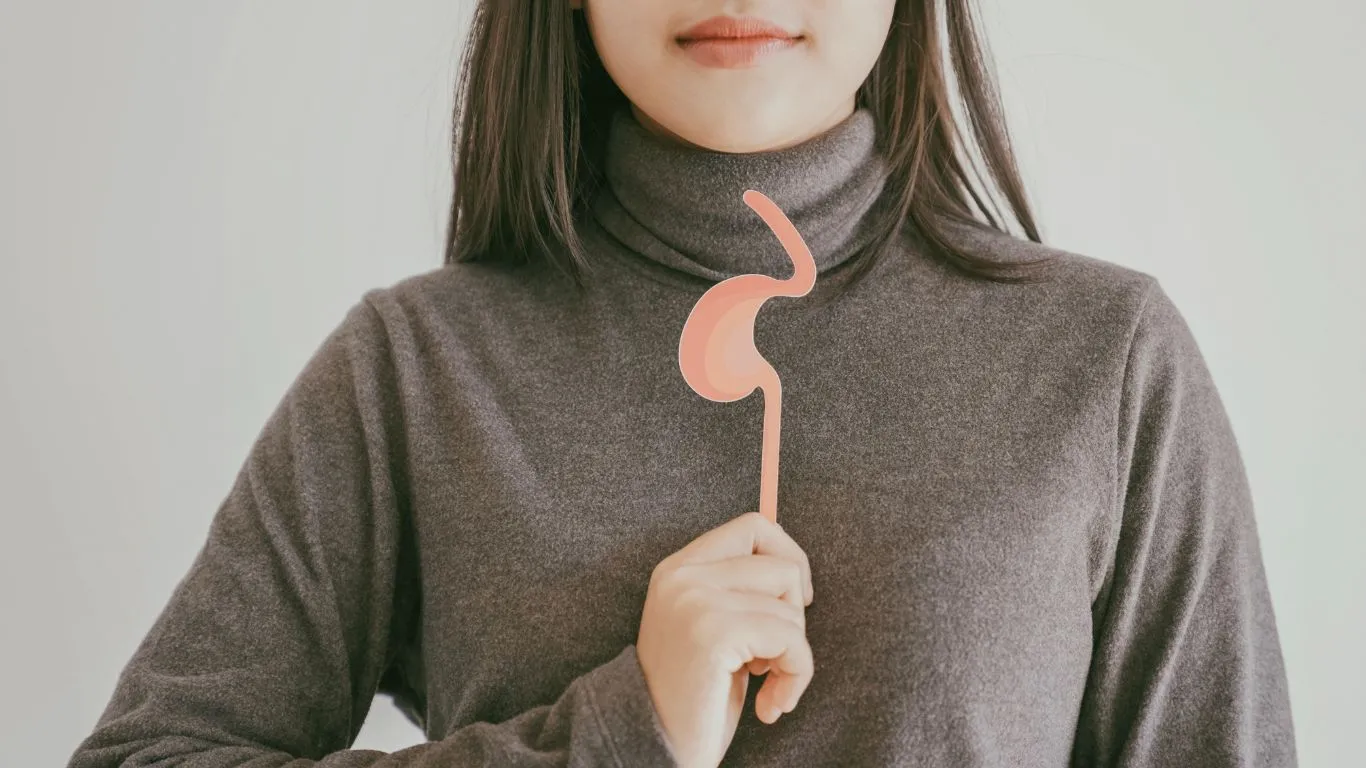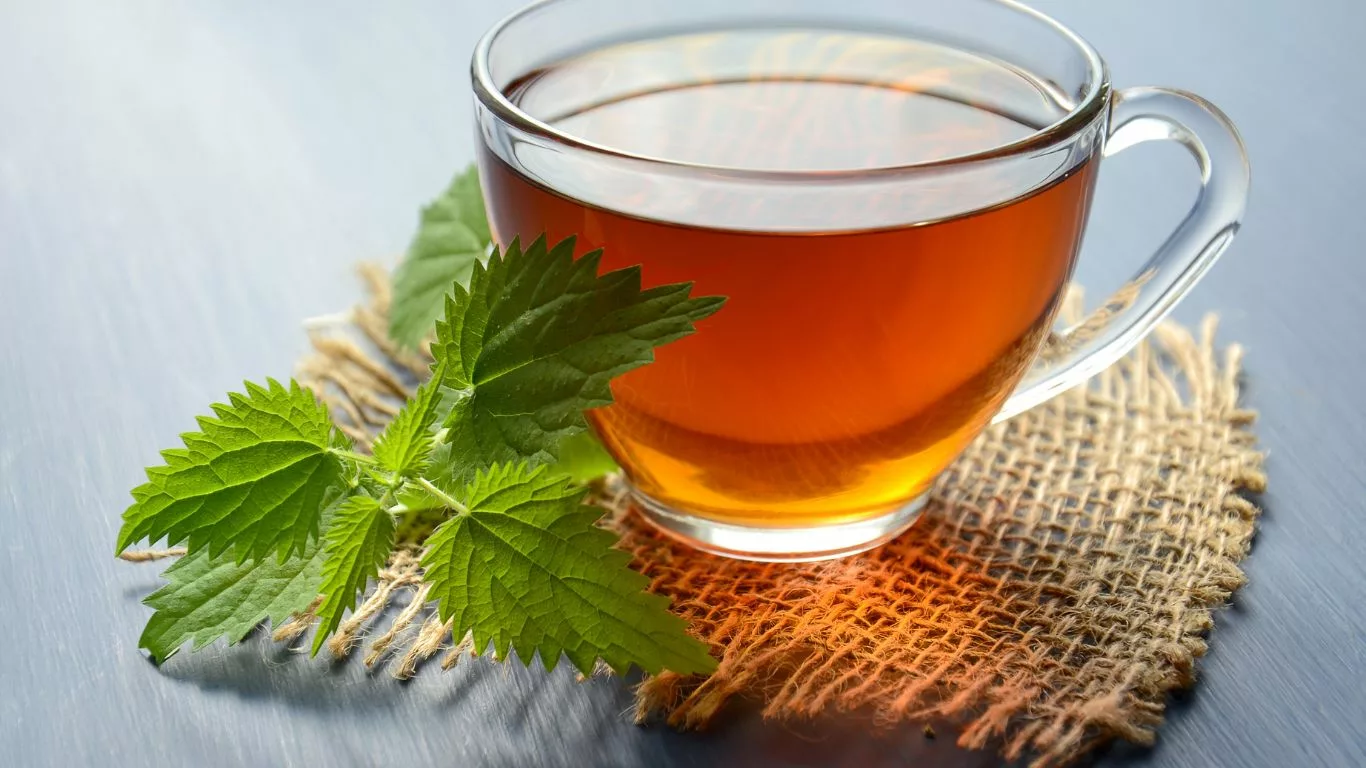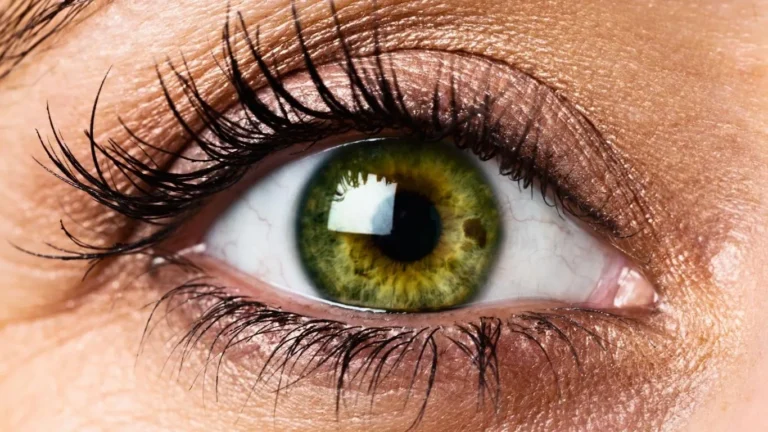Best Herbal Teas for GERD, Acid Reflux, and Heartburn Relief: What Really Works
Let’s be honest—living with acid reflux is a bit like trying to enjoy a picnic while swatting away relentless bees. You’re doing your best to keep calm, but the discomfort keeps buzzing back. I used to think it was just spicy food triggering my reflux, but turns out, even my so-called “relaxing” tea ritual was doing more harm than good. That is—until I stumbled upon a few herbal teas that didn’t just avoid triggering symptoms, but actually soothed them. If you’re someone like me, tired of popping antacids and looking for something more natural, this might just be what your gut’s been begging for.
The Gut-Soothing Power of Herbal Teas

When we talk about GERD (Gastroesophageal Reflux Disease), most people think of meds or giving up half their pantry. But herbal teas? They’ve quietly been doing the heavy lifting for centuries. These are not your average morning brews. We’re talking about herbs that bring actual relief to that burning, nagging sensation in your chest. The right ones can calm your digestive system, reduce inflammation, and even support esophageal health.
But Not All Teas Are Created Equal
It’s worth saying this upfront—black tea, green tea, and even peppermint tea can make acid reflux worse for some people. They relax the lower esophageal sphincter (LES), letting stomach acid sneak back up where it doesn’t belong. Been there, felt that. Instead, it’s about finding teas that don’t trigger that backflow and actually calm the digestive tract.
1. Chamomile Tea – The Gentle Gut Whisperer

This one’s like the hug your stomach didn’t know it needed. Chamomile tea is famous for its anti-inflammatory properties, and it’s one of the few herbal teas that consistently comes up in GERD-safe recommendations. Personally, I find a warm cup about an hour before bed not only helps my digestion but genuinely helps me sleep better too.
It’s also thought to help reduce stress-induced reflux—because yes, your anxiety and your stomach really do talk behind your back.
2. Ginger Tea – Small Sip, Big Relief

When my reflux flared up post-heavy meals, ginger tea became my go-to. The key here is moderation. A thin slice steeped for 5–10 minutes is usually enough to ease that full, bloated feeling without triggering the burn. Ginger’s well-known for supporting digestion and reducing nausea, which often comes hand-in-hand with reflux.
Still, a word of caution: overdoing ginger can have the opposite effect. Stick to light brews and avoid ginger blends with black tea base.
3. Licorice Root Tea – For That Burned-Out Esophagus

This one’s a bit underrated but powerful. Licorice root helps increase mucus production in the stomach lining, forming a protective barrier that can reduce acid irritation. There’s even some evidence it supports healing the esophagus lining. I was skeptical until I tried it for a few weeks—what a difference.
Go for DGL licorice (deglycyrrhizinated) to avoid potential issues with blood pressure. It’s a staple in natural GERD management.
4. Slippery Elm Tea – Your Mucosal Bodyguard

Ever feel like your esophagus just needs a shield? Slippery elm has been used for centuries for exactly that. It coats the throat and digestive tract with a mucilage that acts like a barrier against stomach acid. I usually reach for this when I’ve had a slightly risky meal—it seems to buffer the effects.
This tea has also shown promise in managing symptoms of silent reflux, where throat discomfort and hoarseness are more prominent than heartburn.
5. Fennel Tea – The Digestive Soother with a Sweet Twist

Fennel tea is sweet, calming, and helps relieve bloating—often a hidden reflux trigger. I started using fennel post-dinner and noticed it cut down on the belching and pressure in my chest, which usually led to reflux for me.
It’s even safe for mild digestive discomfort that kids or seniors might experience, making it one of the most versatile options on the list.
When to Drink Herbal Tea for Maximum Effect

- 30–60 minutes after meals – Helps soothe digestion
- Before bed – Calms both reflux and nerves for better sleep
- During mild flare-ups – Use teas with mucosal protection like slippery elm
Just remember—herbal tea is not a chug-it-all solution. Small sips, warm not hot, and observe how your body responds. Everyone’s gut is a little different.
Bonus Tip: Blend Smart, Not Hard

Sometimes I mix two gut-friendly herbs—like chamomile and ginger—for a double dose of comfort. Just be sure you’re not mixing with caffeine-based leaves. And if you’re shopping for pre-blended teas, read the label like your comfort depends on it (because it does). Avoid peppermint, citrus peels, and any “energizing” additives.
For more on how herbs and diet influence GERD symptoms long-term, check out this helpful guide on natural GERD treatments.
Important Caution for Herbal Tea Users

- Always start with a small amount to assess your body’s response.
- If pregnant, nursing, or on medications, talk to your doctor first—especially with licorice root or slippery elm.
- Avoid overly acidic herbal blends—even if they’re “natural.”
If you want a comprehensive look into all dietary strategies for managing GERD, I strongly recommend starting with this GERD diet guide—it’s the foundation that makes remedies like herbal tea more effective long term.
And if you’re still wondering whether herbal tea can make a real difference, I’ll say this—when I finally switched from my daily peppermint-laced green tea to slippery elm and chamomile, I went two full weeks without reaching for antacids. That hadn’t happened in years.
So now that we’ve covered which herbal teas can ease acid reflux without making things worse, let’s dig a little deeper—because there’s more to this tea story than just picking the right leaf. The how, when, and even what you eat alongside your brew can determine whether your herbal tea soothes or backfires. Speaking from experience, I’ve had days when the same tea gave me relief—and other times where it did nothing. It all came down to context.
Pairing Herbal Tea with GERD-Friendly Habits

First things first—tea works best when it’s not doing all the heavy lifting alone. You’ve probably read it before, but it’s worth repeating: lifestyle choices matter. I didn’t fully grasp this until I realized sipping slippery elm wasn’t enough to undo a greasy, late-night dinner slouched on the couch. Here’s what actually made herbal tea more effective for me:
- Elevating my head while sleeping (grabbed a wedge pillow—game changer)
- Eating smaller meals (tea works better when your stomach isn’t fighting an overload)
- Sticking to a consistent eating schedule (helps regulate acid production)
Turns out, the magic isn’t just in the mug—it’s in the whole ritual and how you treat your digestive system around it. There’s a useful breakdown of these habits in this GERD lifestyle guide.
Herbal Teas to Avoid (Yes, There Are Some)

I wish I could say all herbal teas are your digestive allies, but that’s not the case. Some sneakily irritate the stomach or relax the LES, opening the door for acid to creep up. A few that personally gave me trouble, even when they seemed harmless on paper:
- Peppermint tea – Despite its fame as a digestive soother, it relaxes the lower esophageal sphincter and triggered my reflux almost every time.
- Lemon balm tea – Sounds calming, but the acidity was just too much for my sensitive gut.
- Hibiscus tea – Beautiful color, but its natural tartness made my reflux flare up without fail.
For anyone with sensitive stomachs or known GERD symptoms, I’d recommend sticking to low-acid herbs until you’re sure how your body reacts. If you’re unsure, start with a half-cup and no food—and give it a few hours before judging.
Best Time to Drink Herbal Tea for Acid Reflux

I used to think I could sip tea whenever I wanted, but GERD taught me that timing is everything. After months of journaling symptoms, I noticed my body responded best at certain points in the day:
- Mid-morning: Especially after a light breakfast, ginger or fennel tea helped reduce early bloating.
- Post-lunch: A small cup of chamomile helped prevent the dreaded afternoon reflux slump.
- Evening wind-down: Chamomile or slippery elm before bed (at least 1 hour after eating) felt like a shield for my throat and chest.
Drinking tea too close to meals or while lying down, however, made things worse. A key tip? Stay upright at least 30 minutes after sipping. Even better if you walk around a bit—it helps move things in the right direction.
Blending and Customizing Herbal Teas for Maximum Comfort

If you’re a flavor lover like me, drinking the same tea every day can get boring. Luckily, mixing herbs—carefully—can not only switch up the taste but enhance the effects. Some of my favorite combos include:
- Chamomile + ginger: Calming and anti-inflammatory, great after stressful meals.
- Fennel + slippery elm: Soothes bloating and protects the throat.
- DGL licorice + marshmallow root (optional): Fantastic for coating the gut when reflux is active.
Just be sure to check for interactions. For instance, licorice and certain blood pressure meds don’t mix well. Always opt for organic, pure herbs and avoid flavored blends unless you’re certain about the ingredients.
Does Tea Temperature Matter?

Actually—yes. Hot beverages can irritate your esophagus if you’re already dealing with inflammation. I learned the hard way after sipping boiling ginger tea right after a reflux episode. Not fun.
Here’s the rule I follow now: Let it cool until you can comfortably hold the mug with both hands. Lukewarm or warm (not piping hot) is ideal. And cold herbal tea? Surprisingly effective too—especially in warmer months, I keep chamomile iced in the fridge for a refreshing, gut-friendly sip.
Real Stories, Real Sips

I’ll be honest—switching from regular green tea to herbal was an adjustment. But the payoff has been huge. I’ve gone from chronic chest burning to the occasional mild flare-up, and my medicine cabinet is a lot less crowded these days.
Herbal teas may not be miracle cures, but they can be powerful tools when used wisely. A friend of mine, who had been struggling with nighttime reflux, now swears by a bedtime blend of slippery elm and chamomile. She’s gone from 3 AM wake-ups to restful sleep.
That said, always monitor how your body reacts. What works for one person may not work the same way for another. And don’t be afraid to experiment within safe limits—tea is meant to be personal, soothing, and, yes, healing.
At this point, you’ve probably realized herbal teas are more than just cozy drinks for rainy days. They can actually become part of your GERD management toolkit—when chosen and used wisely. But what if you’ve tried the “safe” teas and still struggle with symptoms? That was my exact question during a frustrating week when even chamomile wasn’t cutting it. The missing piece for me turned out to be consistency and a more holistic approach. It’s not just about drinking tea—it’s about how it fits into your entire reflux routine.
Integrating Herbal Teas into Your GERD Management Plan

Let’s be real: no tea is going to “cure” GERD. But the right teas, taken at the right time, can help reduce symptoms—especially when paired with smart eating habits, better sleep posture, and stress management. That’s where I found real relief. If you’re trying to make tea a core part of your daily GERD care, here’s what helped me stay on track:
- Create a “tea ritual” at the same time each day—mine is post-lunch and before bed.
- Prep weekly tea blends so you’re not scrambling each night.
- Keep a symptom journal to track which teas worked (and which didn’t).
It sounds simple, but that small daily routine brought structure to what felt like a chaotic battle with reflux. I found that treating it like a wellness habit—not just a desperate remedy—made it easier to stick with.
Other Natural Remedies to Complement Herbal Teas

If herbal teas are the front line, there are plenty of sidekicks in the natural remedy world that work great alongside them. I didn’t even realize how much these things helped until I added them in slowly and saw my symptoms drop off:
- Ginger (not just in tea—also fresh or in capsules)
- Aloe vera juice (choose the purified, decolorized kind)
- Proper sleep position (elevated head, left-side sleeping)
- Deep breathing exercises (game changer during flare-ups)
When used together, these approaches reduce the frequency and severity of reflux attacks—not just soothe them once they start.
Herbal Teas for Long-Term Digestive Support

I didn’t really think about long-term support when I first started using herbal teas. I just wanted fast relief. But months down the road, I noticed something unexpected: I was having fewer flare-ups overall. It wasn’t just about treating symptoms—it was about supporting the health of my digestive system over time.
Here’s how the right herbal teas helped:
- Chamomile kept inflammation low and supported better sleep.
- Slippery elm protected my throat from repeated irritation.
- Licorice root helped strengthen the lining of my esophagus.
- Fennel improved bloating and digestion after meals.
The key is consistency. Sipping now and then won’t cut it. But when you commit, your gut notices—and rewards you.
When Herbal Teas Aren’t Enough

If you’ve been religiously drinking all the “safe” teas and still feel that burning in your chest or bitter taste in your throat daily, it might be time to look beyond home remedies. For me, that moment came after three months of progress… then suddenly a week-long setback with unbearable symptoms.
I finally got a proper diagnosis, and it turned out I had esophagitis from untreated GERD. That moment changed everything—and I became a lot more intentional about combining natural remedies with medical advice.
Always listen to your body. If you experience any of the following, talk to a doctor or GI specialist:
- Persistent reflux despite lifestyle changes
- Unexplained weight loss
- Chest pain not clearly tied to food or position
- Difficulty swallowing
For early warning signs that shouldn’t be ignored, this guide on GERD symptoms is a good starting point.
Trusted Sources, Not Just Teabags

When researching herbal remedies, don’t just rely on a friend’s Facebook post or a random tea brand’s claims. I like to cross-check things through reputable medical sources. For herbal tea benefits and GERD safety, I’ve found the Mayo Clinic and PubMed research to be solid references when I want to double-check claims.
Health isn’t about guessing—it’s about informed decisions, small experiments, and finding what works for your unique body.
Wrapping It Up Over a Warm Cup

There’s something empowering about being able to manage reflux with something as simple and natural as tea. It’s not about magic—it’s about knowing which teas to trust, how to time them, and how to support them with good habits. I still have occasional bad days, but they’re fewer now. And every night, as I sip my warm chamomile or fennel blend, I’m reminded: sometimes healing is quiet, slow, and comes one comforting cup at a time.
Whether you’re just starting your reflux journey or refining what already works, remember that herbal tea can be a soothing companion. Let it be part of a lifestyle—not just a last-minute rescue.
And if you’re ready to take the next step in mastering your reflux through natural methods, don’t miss this thorough guide on natural GERD remedies that actually work—it ties everything together beautifully.

Camellia Wulansari is a dedicated Medical Assistant at a local clinic and a passionate health writer at Healthusias.com. With years of hands-on experience in patient care and a deep interest in preventive medicine, she bridges the gap between clinical knowledge and accessible health information. Camellia specializes in writing about digestive health, chronic conditions like GERD and hypertension, respiratory issues, and autoimmune diseases, aiming to empower readers with practical, easy-to-understand insights. When she’s not assisting patients or writing, you’ll find her enjoying quiet mornings with coffee and a medical journal in hand—or jamming to her favorite metal band, Lamb of God.







